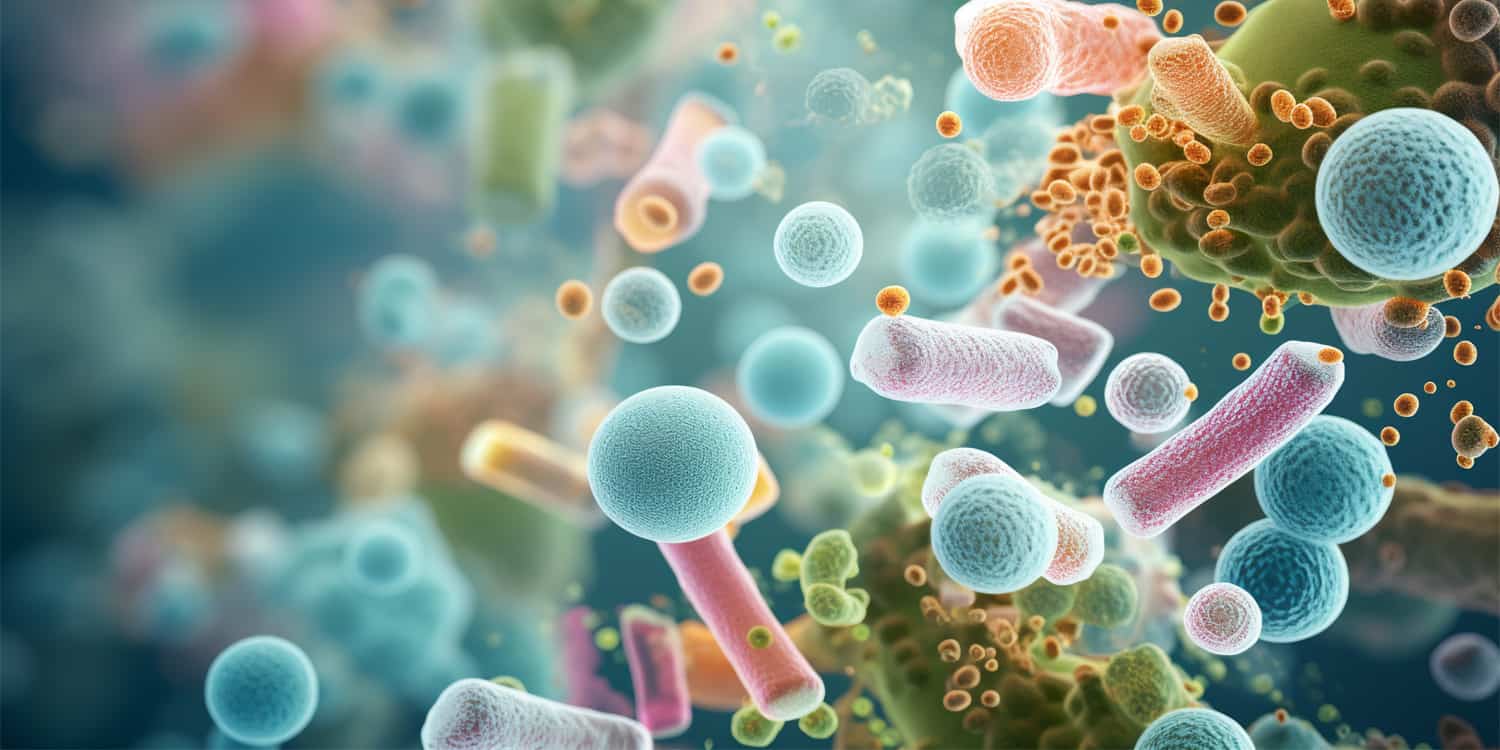A recent study conducted in mice suggests that specific beneficial bacteria in a pregnant mother’s gut could support healthy brain development in her fetus. Researchers at the University of Birmingham and University of Cambridge discovered that the presence of a bacterium known as Bifidobacterium breve in the gut of pregnant mice positively influenced brain metabolism and nutrient transport in the developing fetus. The results, published in Molecular Metabolism, contribute to a growing body of research on the impact of maternal gut health on pregnancy outcomes.
Pregnancy complications, such as fetal growth restriction and placental insufficiency, have been linked to long-term developmental issues in children, including learning and motor impairments. Managing these complications can be challenging, as current treatments often focus on improving blood flow in the placenta but carry varying levels of risk and effectiveness.
With recent discoveries showing the significant role of gut bacteria in physical and mental health, researchers aimed to see if introducing beneficial gut bacteria could improve fetal development and prevent complications. The study focused on Bifidobacterium breve, a bacterium that naturally increases in the maternal gut during pregnancy and has been associated with benefits like infection resistance and immune modulation.
“Rates of pregnancy complications such as preeclampsia and gestational diabetes are rising worldwide,” said study author Jorge Lopez-Tello, who is now a principal investigator at Autonomous University of Madrid. “Unfortunately, we know very little about how to prevent and treat these complications and their programming effects on offspring. In recent years, many researchers have highlighted the important role of the microbiota in diseases such as diabetes and obesity. Therefore, this study was designed to identify potential therapies to help prevent pregnancy complications and to provide new non-pharmacological treatments for pregnant women.”
To test their hypothesis, the researchers used a controlled study with two groups of pregnant mice. The first group was kept entirely “germ-free,” with no bacteria in their gut. The second group, also germ-free, was given a precise dose of Bifidobacterium breve on gestational days 10, 12, and 14. This timing was chosen to replicate the way bacterial levels rise during pregnancy and to avoid causing stress to the mice through repeated handling.
The researchers then examined the fetal brains to analyze gene and protein expression, focusing on pathways associated with cell growth, nutrient metabolism, and other processes essential for healthy brain function. The researchers used molecular techniques to study changes in key genes involved in brain development and metabolism. To further assess the impact of Bifidobacterium breve, they looked at various metabolic processes in fetal brain tissue using spectroscopy to detect and measure metabolites essential for brain growth.
The study revealed that fetal mice whose mothers had Bifidobacterium breve in their gut showed increased expression of genes and proteins associated with brain metabolism and nutrient transport. Specifically, researchers noticed elevated levels of important glucose and amino acid transporters in the fetal brains of the treated group. These proteins help carry critical nutrients to brain cells, supporting growth and cognitive development. There were also increases in molecules essential for brain growth, including proteins that support the formation of new neurons and the connections between them.
“The idea that a bacterium in the mother’s gut can influence cells in the developing brain of her fetus is truly fascinating and highlights the remarkable interconnectedness of biology,” Lopez-Tello told PsyPost.
Another important finding was the upregulation of pathways that support mitochondrial function, which powers cells and plays a significant role in brain development. The researchers also observed changes in pathways regulated by hypoxia-inducible factors—proteins that help the brain adapt to low oxygen levels. These adaptations appeared to enhance the ability of fetal brain cells to take up nutrients, which may further support cognitive development. Together, these findings suggest that Bifidobacterium breve could play a significant role in establishing optimal conditions for brain growth during pregnancy.
“The main takeaway is that maternal microbiota plays a critical role in placental and fetal growth,” Lopez-Tello said. “Our study, along with previous work in Cellular and Molecular Life Sciences, highlights that the absence of maternal gut microbiota significantly impacts fetal growth and metabolism. Bifidobacterium is a beneficial bacterium in the maternal gut that can restore and improve the fetus’s metabolic profile.”
“Therefore, anyone who is pregnant or planning to conceive should consider the health of their gut microbiota, as it is crucial for a successful pregnancy. However, it’s important to note that this research was conducted in germ-free mice, and further studies are needed to validate these findings in humans.”
While the findings are promising, there are limitations to consider. One primary limitation is that the study was conducted in mice, which limits the ability to directly apply these results to humans. Mice in this study were also kept entirely germ-free except for Bifidobacterium breve, a scenario that does not reflect the complexity of human gut microbiomes. Future studies should investigate how Bifidobacterium breve interacts with other bacteria in a more diverse gut environment to better mimic the human experience.
“Bifidobacterium is generally considered a beneficial bacterium and is classified as a probiotic,” Lopez-Tello said. “Multiple studies have shown that it has positive effects on health. However, a key caveat in this study is that the results were obtained using animal models that lack a microbiota. As such, caution should be taken when extrapolating these findings to humans, as the absence of a complete microbiome in the animal models may not fully represent the complexities of human gut health.”
Additionally, the researchers focused solely on fetal development, leaving questions about how these effects might impact postnatal brain function and behavior. Future research could track offspring development to see if early-life changes in brain metabolism due to maternal Bifidobacterium breve supplementation influence learning, memory, or social behaviors. Exploring how different bacterial strains work together or separately could also reveal an ideal combination for supporting brain development.
“This is the starting point,” Lopez-Tello said. “We now know that the bacteria in the mother’s gut can influence placental and fetal growth. Therefore, we need to study how other types of bacteria function and identify an effective ‘cocktail’ of bacteria to design therapies for women suffering from pregnancy complications.”
The study, “Maternal gut Bifidobacterium breve modifies fetal brain metabolism in germ-free mice,” was authored by Jorge Lopez-Tello, Raymond Kiu, Zoe Schofield, Cindy X.W. Zhang, Douwe van Sinderen, Gwénaëlle Le Gall, Lindsay J. Hall, and Amanda N. Sferruzzi-Perri.




